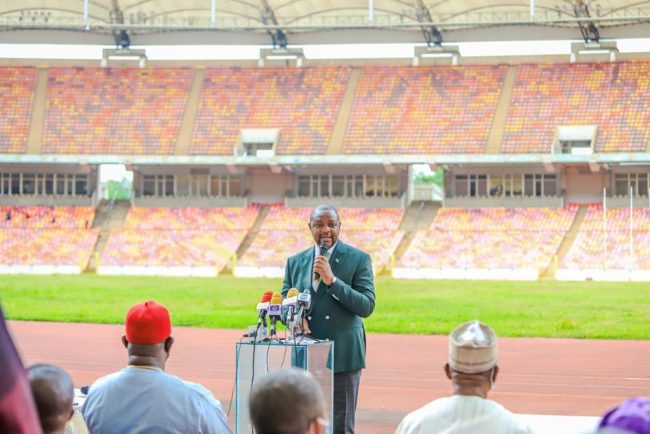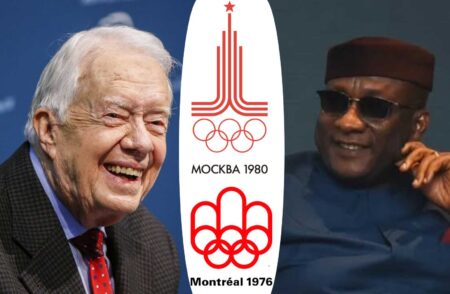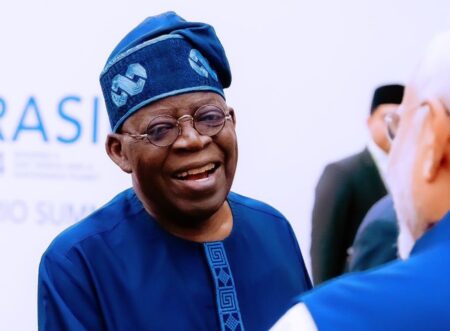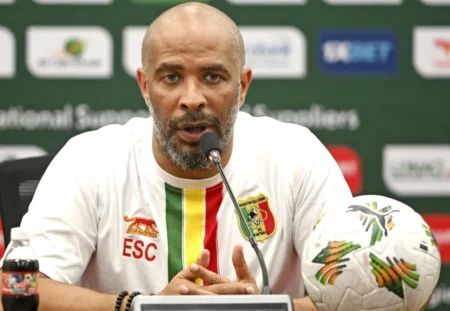I am not a scholar of the subject of sport.
The only authority I draw from on the subject is my personal experience.
Delving into technical matters of sport in a newspaper column is often boring. The sports public do not like to read technical issues. They love the stories around the athletes and the events. Writing this today, therefore, is a real challenge, but write I must as a responsibility to sport. The cost of remaining silent is too high to bear should things get even worse than they already are. Nigerian sport is in bad shape and everyone knows it.
Mr. Sunday Dare, the ‘new’ minister in charge of sports, one year old in office already, has infected me with his derring-do attitude. He has shown more guts, determination and commitment to turning the fortune of sport around than many of those that held the office before him. I can feel him in several places. I fully share and appreciate his candour, spirit and enthusiasm for a new beginning. So, we all must help him.
After almost three decades of observing a deterioration in our sports facilities, infrastructure and institutions, I have come to the simple conclusion that a panacea for the revival of proper sports development in Nigeria is the return of a system of administration anchored to the National Sports Commission. I feel that using a ministry-of-sports structure, tried severally in the past, would continue to yield the same ‘failed’ result. That is a subject of close study and interrogation also.
The NSC is an agency of the federal government, a parastatal supervised by the Ministry of Sports, tested in the past with great success for over two decades, was made up of sports professionals and technocrats, with the responsibility to handle elite athletes’ development in the country. Elite athletes are those gifted boys and girls discovered and assembled from the grassroots. The grassroots are anchored to primary and secondary schools under another agency under the States’ and Federal Ministries of Education. The Nigeria School Sports Federation is in every State of the country, made up of some of the best-trained sports professionals, qualified teachers with degrees in physical and health education.
The elite athletes discovered and selected from the grassroots form a pool in the NSC program that will train and hone the best of them through various processes at home and abroad some times to be able to represent the country in various international sports. In short, the National Sports Commission is the body established to train the best athletes, and manage national facilities, institutions and events that will develop the best athletes and prepare them for international competitions.
In this assignment, theoretically, and only because it cannot on its own register athletes for international competitions, the commission has to necessarily collaborate with national sports federations and the Nigeria Olympic Committee to be able to register and send teams to participate in the different international competitions.
For example, to participate in the Olympic Games, the NSC must go through the NOC. To participate in the football World Cup, the NSC must work with the Nigeria Football Federation, NFF. The same thing goes for other sports too, basketball, tennis, swimming and so on – the NSC must collaborate with the different sports federations to be able to participate in their international competitions.
Also Read: Dangote Group Begins $1m-Worth Renovation Of Moshood Abiola National Stadium
All of the above is a little excursion into an ideal architecture of the structure of the sports sector and shared responsibilities between the bodies. A closer study and look is necessary to break it down even further and better for better understanding and implementation.
In practice, as we have found, because of our peculiar circumstances in Nigeria, as a result of political interruptions and interventions, the lines of responsibility between the various organs have become blurred in time and for different reasons, particularly during implementation. They have become so blurred in the past three decades that very few persons within the sports sector can now draw the clear lines of distinction of roles and responsibilities of the different organs. The result is crisis and confusion that have stalled development and have remained undealt with.
The high turnover of Ministers, plus the shuffling of sport management between a set-up of the ministry of Sports with the NSC as a parastatal, the ministry subsuming the NSC, the NSC existing without a supervisory sports ministry, or the collapse of the two under the Ministry, an unfortunate musical game of chairs that started around 1991 that have accumulated and become the Albatross of sports growth and development in the country.
This continuous shuffling of structure and responsibilities, has left sport in a daze, with the debris of a deficit of understanding: who is responsible for what? who funds what? etc. Today, the greatest challenge facing sports is untangling the resultant knot, reassigning the different roles and responsibilities, and coming up with a proper, simple and functional sports architecture.
Without any doubt in my mind, there is confusion in understanding and separating the roles and responsibilities of the various organs in sports. From my experience, it is important to revisit the issue of the NSC and examine the merits and demerits of creating it with the necessary legislation. I am told that the present bill in the National Assembly is a far cry from the best that can be expected. So, the entire thing needs a re-examination, this time, tapping from the experiences of the pioneers whilst drinking lavishly also from the enthusiasm, energy and innovation of the new generation.
Grassroots sports development is a project of the Ministries of Education. They are rightly anchored to education in the States and Federal Ministries of Education. They were properly funded statutorily through UBEC and SUBEB, agencies of the federal and State governments respectively, that have the resources to do so with allocated funds drawn from the national treasury. That arrangement was consumed by the futile attempt to marry the ministries of education and of sports in a collaborative joint arrangement. Lagos State developed a concept that they say worked, but closer examination reveals a fragility in the relationship and the anticipated results. The Nigeria School Sports Federation was losing its teeth and becoming impotent.
The regular change of Ministers, political appointees not drawn from the specialized field of sports, and dependent on advisers drawn from a pool where everyone is an ‘expert’ without depth in specialized knowledge and experience to pass on, have afflicted all of sport.
What is needed now is a recalibration, a temporary pause, to re-set the button, gain some time to look again at the architecture of Sport in Nigeria.
If Nigeria had travelled along the projectile of the era of professional sports administrators in an NSC that started the journey of sports development in Nigeria, from Jerry Enyeazu, to Isaac Akioye, to Awoture Eleyae, to Engineer Idibia, and so on, Nigeria would have achieved what Australia, Jamaica and Kenya did through sport. Sport would have become a very viable industry in Nigeria.
So, without hurting any sensibilities, this is my humble appeal and suggestion to the federal government through the Minister. Let the country take the matter of reviving the NSC very seriously. Let us interrogate the subject with professional candour.
Let us do what Chief Obafemi Awolowo did with his free education programme. The document was given to me by his daughter, Dr. Tokunboh Awolowo-Dosumu a few years ago to read and keep. It was a coffee-table pamphlet of no more than 16 pages. It was so simple and pleasurable to read that even an elementary school pupil will read it in 10 minutes, digest and understand it clearly and understand the process of implementation. Even when the late sage was no longer in power, that blueprint was followed by generations of succeeding Yoruba leaders until the process was blurred by political shenanigans.
Finally, just to buttress my conviction. At the start of the 21st Century, Australia rose rapidly in world sports. They became a model of sports development to the rest of the world.
I claim some credit for inviting their sports administrators to Nigeria at the time. In a period of two years Nigeria established a relationship with the Australian Sports authorities. They went around Nigeria, did a forensic on our problems, and came up with straight forward recommendations for the development of the country’s elite athletes.
What they came up with was a structural mirror of where Nigeria started from – a Ministry of Sports existing side by side a National Sports Commission, serviced scientifically by a National Institute for Sports, a structure that existed in Nigeria’s past, functioned flawlessly and remained the most productive period in Nigeria’s sports history.
What that means is that Nigeria can and should go ‘Back to the Future’. The country should drink from its history and experience, from that old model, and chart a new course into the future.
Got what it Takes?
Predict and Win Millions Now








